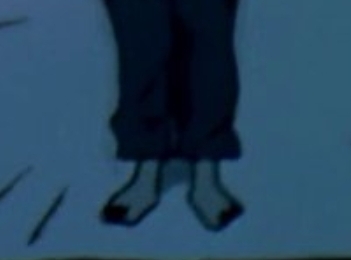Like the title! I want to cultivate some helpful skills but do so gradually, as a hobbyist. Tempted to get into lockpicking, haha.
Not necessarily direct praxis but any kind of hand repair skill seems like just fundamentally good to learn and also a fun hobby, like hand sewing.
Extending the useful life of everyday things and learning to make your own reduces consumption directly which I would argue is anti-capitalist.
Even better if you can channel that into mutual aid via either helping to educate local comrades or using the fruits of your labor to help your fellow workers.
Carpenters and mechanics came out of the woodwork (heh heh) for a lot of barricades, historically speaking.
Being handy, or being willing to watch a guide and try to fix something is a huge skill for you and those around you. My mom’s brand new dryer messed up and we couldn’t figure it out. I pulled it apart and found a wad of paper stuck in the blower motor. Saved however much new dryers go for these days.
Oh, good idea!
I have clothes that I’ve stored for years because eventually I plan to sew the holes on them.
I’ve been meaning to get into sashiko for a while now. Finally got the inexpensive materials together, now I’m just waiting for something that needs a little mend.
It’s gonna sound lame but get a 90s copy of the boy scout handbook and learn all the stuff in it by putting yourself in situations where you will use them. For things like tourniquets and other first aid, take a class. Don’t be afraid to update the methods by looking up stuff online.
If you’re not sure why I suggested this: bsa operated at one point as a pipeline into the military for children. The skillset it teaches is basically hobby infantry.
Why specifically a 90s copy (I only have a 2009 copy)?
They add new things and change course with every edition, IIRC around that edition (12th ed, 2009) they started padding out the book with filler bullshit like the food pyramid and how to tie a tie.
Now I’m imagining the 1930s Boy Scout manual is just straight up how to DIY your own landmines.
Not far off, Baden-Powell (the OG of the Scouting org) developed his skills and compiled his notes in South Africa, training with Zulu and fighting in the 2nd Boer war.
Anything before the mid-2000s will have an advancement requirement where you jump fully clothed into water over your head, and either turn your clothes into flotation aids or throw them to shore.
There’s like a million reasons but broadly speaking the brown cover with the compass and photos on it is a happy medium before the organization tried to adapt outside of being an equivalent to the Nazi children’s program it was started to provide parity for.
Not really, but in terms of creating a group of children who have the skillset to be stormtroopers.
That’s good for American children (especially opening up the group to girls!), but it means the manual has lost a lot of what made it a good literal baby steps guide to building skills that will serve you in conflict.
Again, you want the last gasp of fascism edition because swimming a mile isn’t Nazi coded or woke, it’s continuing to live coded.
There’s probably a lot of differences but whatever you have is a great start to fitness, mental health and a ton of useful skills and ways of thinking.
That one’s fine.
deleted by creator
Hiking is a gateway to a lot of different useful skills and knowledge bases. It’s good exercise for your core and legs which makes you embrace stress/pain productively. Revolution is mostly cardio and it’s good cardio too. You learn your native ecosystems, all of the different components of them, and how society is built on top of them. Ethnobotany is as much a survival skill and poverty food enhancer as it is a really rich field of indigenous studies. I’m much better at intuitively reading the weather, land navigation, climbing, and general bushcraft skills after doing it. Being able to make a solid socioecological critique instead of just a socioeconomic one connects with people who align with us in important values but don’t know how to connect the dots between economy and environment. The more time you spend hiking the more you learn the metabolic value of each individual species/land feature that becomes background noise in our alienation from nature.
Hiking but with a botany twist is a good perspective! We already hike, but I hadn’t considered that part.
deleted by creator
To say nothing of what it can do for their cooking. If I find a single porcini or morel, rice is a restaurant-quality dish. Being able to differentiate whortleberries from nightshade means a camping breakfast you remember a decade later. I’ll spend an entire day hunting an ingredient over 25km and it’s more fun and rewarding than anything else I could do that day. Then you get into how traditional cultures manage(d) to survive off that land and you gain a really intimate appreciation for the seasons and topography of the space around you.
I’ve heard! Lots of foraging to be done.
hiking is walking
Walking is cheaper than most other hobbies

Waddya mean cheaper? It’s literally free? Who da heck pays to just go walkin around here!

It’s worth investing in good hiking boots to spare your feet/ankles and a good daypack to protect your spine/shoulders. You can do it for free or get those things second-hand for cheap, but I ended up putting around $300 into my gear once I got serious about that and camping.
Lots of good dry cushy socks too!
Get into hiking, but consider getting into backpacking or overnight backcountry camping in general. I’m a long time canoe camper and did an ambitious hike last year.
The more you do this the more you learn:
- how to prepare and preserve food
- how to acquire water safely
- how far you can get in a day under your own power, on water or land
- how much direct sunlight can actually drain you
- which kinds of weather are too dangerous to go out in
- your own physical and mental limits
- how to help others who don’t share your skillsut or abilities
- plants that can be useful
- flora and fauna to avoid
You made the right call with that thru hike. The first time I went up Longs Peak, a pathological fixation for me since I started that I was determined to do at all costs, I got within sight of the summit and was so dehydrated that it wasn’t safe. Learning when it’s right to turn back was a bigger lesson than I took away from any other hike because it taught me how to prepare for every subsequent one. Like with the stress and pain, I like that hiking provides you a controlled environment to learn failure and self-criticism in productive ways.
Yep, you definitely also made the right call.
Hitting your physical max isn’t fun. Eleven years ago was my first and only trip where I didn’t have enough food, and that has engrained into my brain a particular understanding of scarcity that I never would have otherwise (having not grown up in poverty, of course).
I can’t in good faith recommend that kind of extreme to anyone, but once you’ve at least approached your limits, you have a much better sense of when to stop and rest, how much food you need, or how long that last litre of water is going to last you.
A bit of a weird answer, but listening. Being an active, engaged listener when someone needs to be heard or understood is a skill that can be cultivated like many others - in fact, in case of ND folk like me, we had to learn and remember to apply it. It connects you to the other person, it’s a nice thing to do, and it costs nothing except for your time.
Also reminds me of something I read just yesterday:
The urban guerrilla, living in the midst of the population and moving about among them, must be attentive to all types of conversations and human relations, learning how to disguise his interest with great skill and judgement.
In places where people work, study, and live, it is easy to collect all kinds of information on payments, business, plans of all kinds, points of view, opinions, people’s state of mind, trips, interior layout of buildings, offices and rooms, operations centers, etc.
Good point!
Plus, people are pretty fun and interesting if you give them a chance!
Yep, I agree!
Getting into fermentation could be interesting. There’s the fun aspect like making beer or wine but there’s also foods like kimchi or sauerkraut or cheese. It’s good to know how to do and could be helpful at preserving food in the near future where it might be necessary.
Been meaning to get back into fermentation, used to make all kinds of hot sauces and whatnot.
Kimchi and sauerkraut and kombucha/jin are all way cheaper to make yourself rather than buying. Cheese and bread, not so much.
You can also pickle most perishable foods to make them last longer.
Wild Fermentation by Sandor Ellix Katz is a fantastic resource. It was reading an abridged version of this in zine form that got me started doing fermentation.
hell yeah homemade kimchi rules
Making your own ginger beer or your own lactofermented pickles/hot sauces is so fun. Plus, they’re delicious and good for you!
Sandor Katz’s book is a great primer, and if you want a very comprehensive guide of all the fermentation things you can do, then the Noma guide to fermentation is your best bet.
An old school communist comrade of mine swears by geocaching
Huh, interesting! Wonder why?
I gotta assume dead drops and stuff like that. geocaches are literally stash spots designed to hide in plain sight in public places, plus just navigation is a survival skill
Oh, that makes a lot of sense!
What Aceivan said. Personally I enjoy plain old fashioned land navigation with a pencil, compass and a pocketful of rocks.
Learning both digital and non-digital land navigation can be a critical skill ranging from your phone’s dead and all you got is a handful of descriptions of where you need to go to in a part of town you know nothing about, to being stranded in the middle of literal nowhere and all you got is the sky and the land to orientate yourself. Even learning the most basic thing like watching the direction the moon or sun is moving and at what relative angle they are to setting or rising to help figure out your mental compass can be life-saving is emergency events.
Also when my friend showed me geocaching I was extremely surprised at the creativeness of the dead drop props used in urban environments to help them blend in. Like who the fuck would look for a secret message hidden in a fake electrical access panel on a random highway lightpole? Strap on a reflective yellow vest and a hard hat and nobody would ever question you looking for all the random shit around town while you geocache!
Just wanna point out here if you want to learn map navigation from the comfort of your home you can play any number of SP or (preferrably SP) Arma games / missions with the magic floating markers and GPS turned off, some come like that by design especially in Arma 1 and 2. I can see sightlines out of topological maps
I would play Arma 3 just for a taste of the old bullshit I used to do when I get a yearning for a hit of nostalgia, but nothing beats really experiencing getting abso-fucking-lutely getting lost in the middle of a huge fuck-off forest in the middle of winter somewhere in the middle of Alaska for 18 is hours a day for several days in a row. Or whatever your local equivalent would be lol
I’m gonna go out on a limb here and say getting absolutely lost in the wintery alaskan wilderness with no honed navigational skills is more of an advanced move
I survived and that’s a fairly low bar concidering I’m me.
Never put much thought into navigation and geocaching, but y’all have me sold. I’ll have to look into that!
I’d also suggest learning camping up to like Luke Nichols on his YouTube channel “Outdoor Boys”. It’s a bit extreme, but at least knowing how to not be completely miserable out in the middle of nowhere is always a nice trick in the bag to have. If nothing else, learning how to start a fire with an empty Bic lighter can be a cool trick to show off to your friends.
Thanks, will do! And I actually do know how to strike a fire up with an empty bic, though finding tinder can be hard.
Oh yeah if you got a knife or a sharp rock you can just scrape off plastic shavings off the lighter to get the small tinder pile set up along with grinding the flint a bit for some of that sweet sparky sparky dust to give it that extra oomph
Oh, didn’t know that part! That’s handy in a pinch, if there’s no dry wood to scrape up into dust.
Pokemon cards so that after the revolution i have people to play pokemon cards with
Hell yea
Gardening.
I learned to make bread. It’s cliche but if shit hits the fan, flour water and oil last forever.
Edit: also cardio. I only started running to be valuable to socialism. Good cardio can go a long way
Bread making is fun! My fiancé is the baker though, we make sourdough. Cardio hurts, but I’ve been trying to work it in!
Cardio is ass but it’s unfortunately important.
I know… also working on being less weak in general so I can be more useful in a revolution!
Defense and basic medic stuff can go a long way too! First aid, cpr, self dense etc.
I’ve been meaning to sign up for classes! I have CPR training but first aid and self defense are on my list.
Tinkering on bicycles has given me a surprising amount of cross-transferrable skill as to maintenance or building a lot of (simple) mechanical systems and how forces work on them even outside of the bicycle world.
Oh, good idea!
Bike work, especially refurbishing older ones, is really good at building lots of useful skills. Plus, you can ride a bike to get cardio once you finish. I really enjoy exploring random trails and single tracks on an all terrain bike (bigger tires/no suspension), and it helps with developing and testing navigation practices and fits with many of the other outdoors/hiking related suggestions like botany and foraging.
Also, strength and conditioning, and a little bit of parkour. Nothing fancy like flips and spins, but being able to get up or over or down from a fence or wall or pole or tree is very useful. Being able to do a few pull-ups is a good baseline for practical fitness, along with being able to run a 7-minute mile. Body-weight exercises are all you really need; no fancy equipment is necessary if you understand how to work out a muscle group.
Cooking for large groups is an important skill. You can scale this up from large batch/mealprep to small gatherings to large gatherings. I’ve seen several large gathering situations where it was extremely noticeable when there was just 1 person skilled with this, and also when there wasn’t.
Scrapping/dumpster diving. Works best if you have a decent amount of storage space and a cargo-suited vehicle. Tapping the waste stream yields bounties. All sorts of things can be fixed up or sold or even used as-is.
No one’s mentioned this yet, and I don’t relish it personally, but being good@car is extremely useful. Everybody has car trouble once in a while, and being able to fix it yourself can save you or your comrades up to thousands of dollars a year.
Go out for nature walks and identify all the plants in your local area.
Socializing, leadership, organizing… you know, things that require you to touch grass and might be out of reach for some of us who are nd and/or have other constraints
I can recommend woodworking. Yeah, you can get really fancy with it, with lots of expensive tools. But you can also keep things simple, mostly working with traditional hand tools. You can even build a lot of your own tools. If you want free material, you can recycle old obsolete furniture you get for free into new and useful pieces. (Think old entertainment centers built for old giant CRT TVs, desks with huge drawers for storing massive amounts of paper, etc.)
Yes, you can go full bougie artisan if you want, but from a more leftist perspective, you could follow the tradition of the country carpenter. An old-timey country carpenter was someone that had the skills and tools to help people with their needs in a cheap and effective manner. Their customers were poor and working people. Need a dresser or a table? They would build you something functional. It might have been made of whatever wood was on hand and from mismatched fasteners, they would produce something usable for a cost people could afford. They would be just as likely to accept payment in barter as in currency. The modern version of this might be developing the ability to offer simple repairs to even IKEA-type furniture.
With global trade breaking down, people are going to need to fix the things they already have. If the price of everything at IKEA triples, well suddenly repairing things is a lot more viable than just throwing it out and buying another one. I focused this discussion on woodworking, but the same applies to many fields. Start thinking about how you can help people not just by making new things, but by repairing those that already exist. We need to learn to get by, to make due with what we have, now more than ever. Develop the skills for furniture repair, basic appliance servicing, simple electrical and plumbing work, etc. In an era of both stifled trade and immigration, the need for people with basic everyday repair skills has never been greater. You can make it a career if you want, or you can do it just as a mutual aid activity. Hang a shingle and offer your services on a sliding scale if you want. But this is one of the most practical and rewarding ways you can help people in your community. You get to directly help people in a tangible way, using an activity that lets you use your own hands and build/repair something. It’s the kind of work that’s good for the soul.

Been making a low Roman workbench and getting informed about low-cost, low-tech workholding. Above is a system of holes on a bench, together with pegs and wedges, that can be used for holding boards in different positions for planing and for working on the edges. Got the idea from the “Ingenious Mechanicks” book that Rex Krueger recommended on his “workholding on the Roman workbench” video, where it’s described as a traditional Estonian carpenter workholding system; and also from a YT channel called “DW Woodworks” who has a video called something like “workholding on the Roman workbench part 2”.
The pegs are made out of branches of a local tree they cut down that I partially got home, and the wedges from a reclaimed board I found on my street lmao. Woodworking is FUN. Highly recommend the “woodwork for humans” series of videos by Rex Krueger following your “poor man’s carpenter” idea
Actually I’m quite familiar with Rex! I think he is who introduced me to the term “country carpenter” IIRC. Woodworking is great. You obviously can get really fancy with it, but there is a continuum from true 0-budget “reclaimed tools and materials” all the way to “10 million dollar production shop.” And money spent doesn’t map directly to quality of work.
Woodworking can be very approachable, even with a very limited budget. Really, the greatest barrier to entry isn’t money, but space. Sawdust is a pain to deal with, and you really don’t want to do woodworking in your living room. Though I have definitely seen videos of people who do woodworking even in apartments. They’ll dedicate a spare bedroom to the hobby, do their work entirely outdoors under the sky, or have a little tiny micro workbench in a closet. Even with zero space you could at least do some basic carving or whittling on your kitchen table. And that’s before you consider options like shared community shop and maker spaces.
My setup has gotten pretty elaborate at this point. But I have the funds for it, and I’ve been building up my capabilities for several years at this point. You obviously can get quite elaborate with woodworking equipment, and I certainly have. But I got started with just a miter saw and a card table.


Wow, that is one nice workshop. The hello kitty bandsaw is the coolest thing I’ve seen in a while tbh, gives the shop a lot of personality.
Yeah, regarding space for woodworking, I’m currently making 3 Roman workbenches with removable legs, which will be used for an upcoming project in which I’ll teach some buddies how to make a bow out of a (preselected) wooden plank. Ever got into bowmaking?
Thanks! Yeah the bandsaw is an old secondhand one I got and did some refurb on. I’ve been slowly trying to add more color to the shop, as can be seen in the painted air ducts and the bandsaw. And no, I haven’t tried bowmaking yet. Sounds fun!
If you’re considering bowmaking, do yourself a favour and watch Dan Santana’s YouTube channel. It’s not only extremely informative, it’s also shot tastefully and beautifully
Just took a peak. An hour long video on making a longbow? Yes please!



















